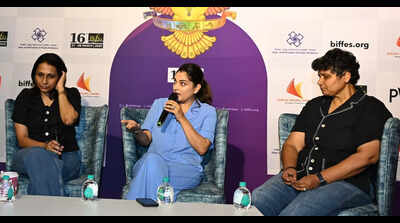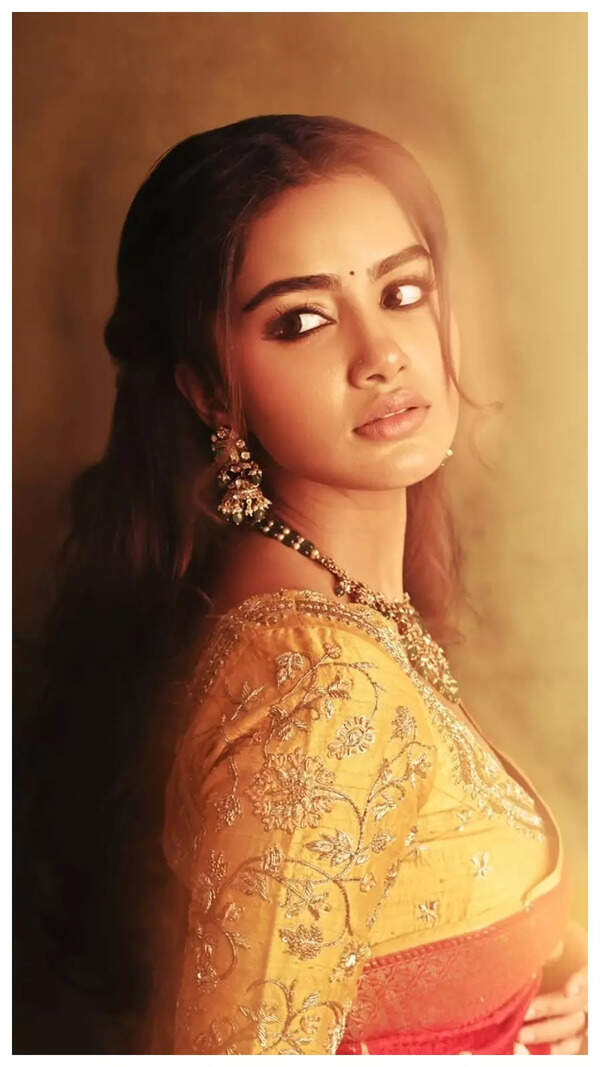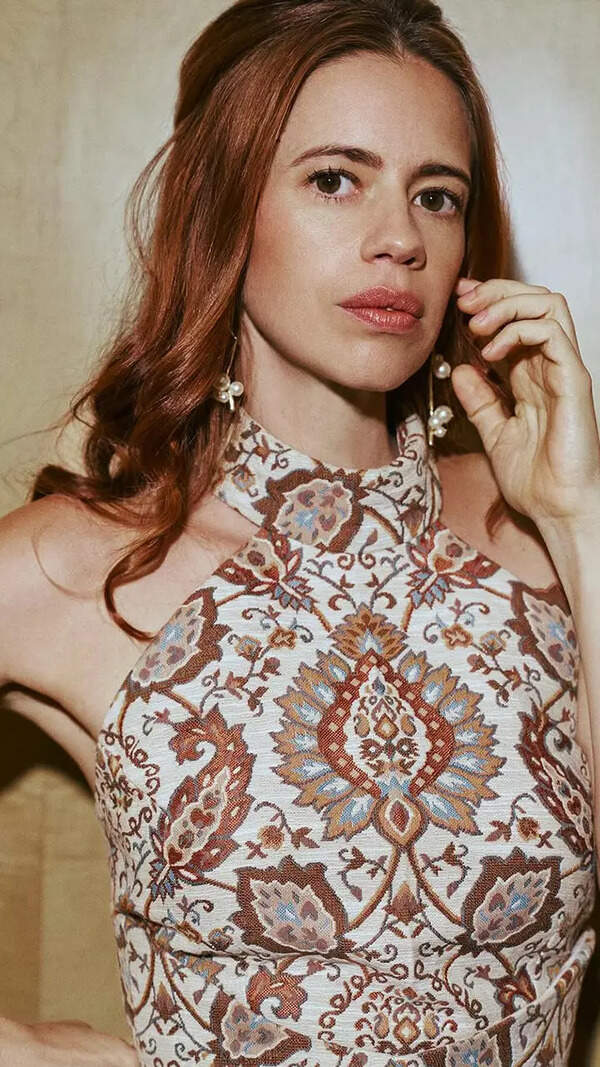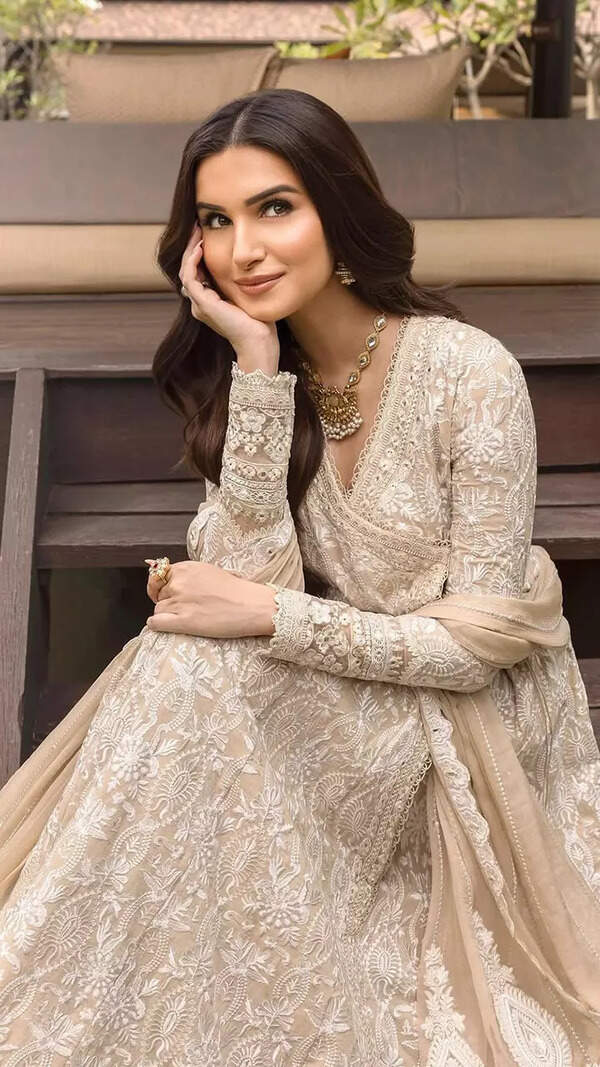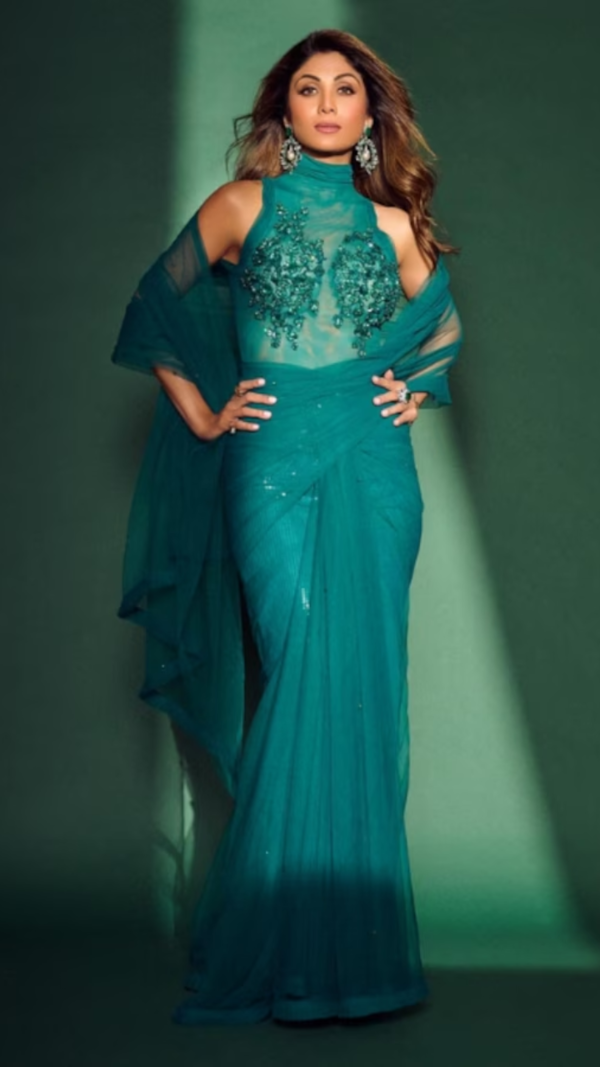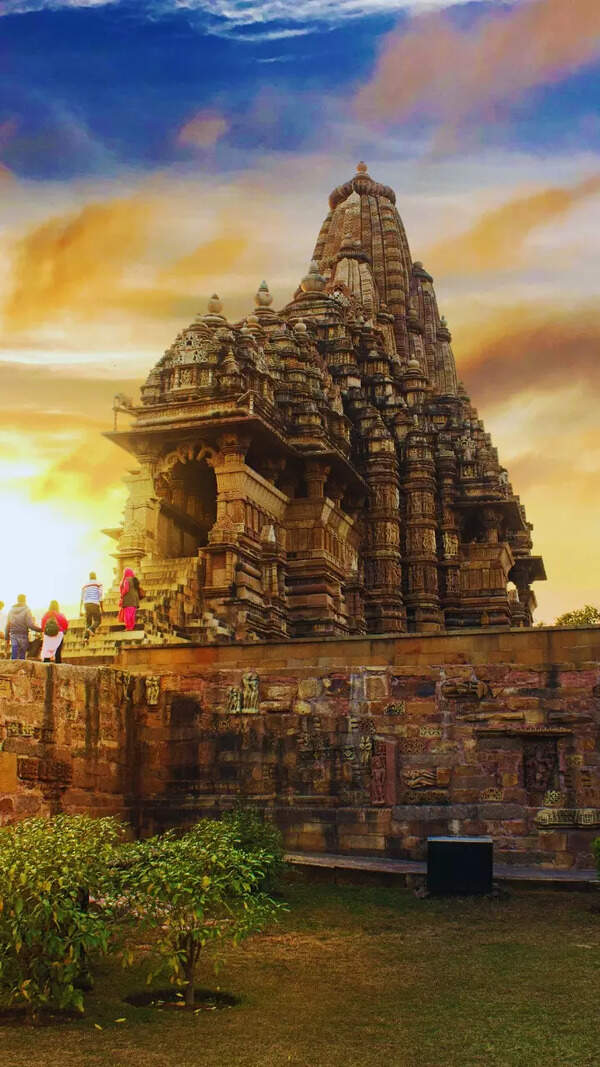- News
- City News
- bengaluru News
- Panellists on women in cinema: We need women's voices, to be heard, on & off screen
Trending
Panellists on women in cinema: We need women's voices, to be heard, on & off screen
As the film industry continues to grapple with issues of equality and representation, a panel featuring actor and producer Ramya, cinematographer Preetha Jayaraman, and director-screenwriter Nandini Reddy, moderated by Latha Srinivasan, explored the role of women in cinema, emphasising the need to break barriers, challenge norms, and demand change. The session held at the Bengaluru International Film Festival provided valuable insights into the experiences and perspectives of women in the film industry. Key takeaways from the discussion:
MUCH OF OUR CINEMA STILL REVOLVES AROUND MACHISMO: RAMYA
The experiences of women in the film industry have varied greatly over the years, marked by both challenges and progress. Ramya, reflecting on her own career, shared, “When I did my first film, Abhi, the director didn’t even give me a script. When I arrived on set, he simply asked me to run. I had no idea who I was running to or why. By my second film, Excuse Me, I was given the script — at least until the interval. That felt like progress! From those early days to reaching a point where directors began writing scripts with me in mind, I’ve come a long way.” She added, “But in the 20 years I’ve been in this industry — and even during the time I was away from the screen — feel like little has changed. I’ve heard many scripts, but they’re stories I’ve already done before. That’s not to say the industry hasn’t evolved. Films like Gantumoote, Sapta Sagaradaache Ello, and Aachar & Co. have beautifully portrayed women. Yet, much of our cinema still revolves around machismo.”

Expressing her aspirations for Kannada cinema, Ramya added, “When I look at the Malayalam industry, I admire how their films sensitively depict women. That’s what Kannada cinema needs — more narratives centered on women. A society becomes more compassionate when more stories are told from a female perspective. It sensitizes the audience. That’s what we aimed for with Swathi Muttina Male Haniye — a film where the protagonist is a woman who has her voice and lives by it, even when it means confronting taboo subjects. These are the kinds of films I want to make.
An actress’ career differs drastically from their male counterparts: Ramya
The issue of pay disparity in the film industry continues to be a contentious topic. Speaking about the issue at the session, Ramya noted, “I remember working with male co-stars who had not yet delivered big hits. At the time, they were paid less than me. But once our film became a success, those same actors were paid 50 times more for their next project, earning in crores. Meanwhile, my pay increased maybe five times, and I was still struggling to reach the ₹1 crore mark.”
WE NEED MORE WOMEN COMING TO WATCH FILMS: NANDINI REDDY
Right now, the push for diverse voices in cinema is paramount – but it must also contend with the practical demands of the market, noted Nandini. “The experiences I’ve had naturally find their way into my films. We need all kinds of voices, especially women’s voices, to be heard. But commercial success is just as important — it gives you the power to do more. Like actors, directors are judged by their last hit,” she said. “Are producers willing to back women-centric films? Most of them only look at numbers. If they see that these films make money, more will invest in them. Right now, 70 to 80 percent of the audience is male, aged between 18 and 23. We need more women coming to watch films. And from a producer’s perspective, anyone making a film should be able to recover their investment. Take Ullozhukku, a brilliant film with two women at the forefront — I would love to see a film like that make ₹50 crores. That’s when change happens,” she noted.

There are some brilliant filmmakers creating meaningful roles for women: Nandini
Nandini revealed, “I don’t consciously pick only women-centric stories; it’s an organic process. As a woman, I’ve always written strong female characters. I think my friend Hemanth Rao did a fantastic job with Sapta Sagaradaache Ello in this regard. There are some brilliant filmmakers creating meaningful roles for women. For my next project, Samantha is the producer, and she has ensured that everyone on set — regardless of gender — receives equal pay. That’s the kind of change we need.
AS A WOMAN, I STILL HAVE TO WORK TWICE AS HARD TO GET HALF THE CREDIT: PREETHA JAYARAMAN
Preetha Jayaraman shared, “I was the only girl in my cinematography class. But today, I’m happy to see more women working on sets. When it came to my work, I was accepted easily — once people realized I knew what I was doing, I earned their respect. But I still have to work twice as hard to get half the credit. If I don’t, people assume I can’t do what a man can.”

My only wish is for filmmakers to write meaningful roles for women: Preetha
“While as a woman, I’ve had to work harder, I love shooting. Every story excites me. My only wish is for filmmakers to write meaningful roles for women — not just mothers who exist as props in the background,” Preetha noted.
Pictures by Srivatsa Shandilya
Get the latest lifestyle updates on Times of India, along with Women's Day wishes, messages and quotes !
End of Article
FOLLOW US ON SOCIAL MEDIA
